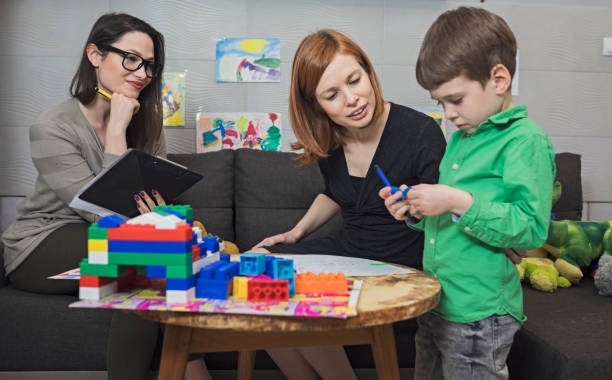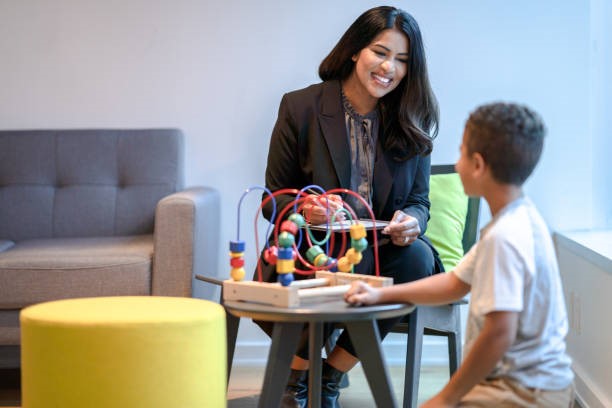Young adolescence is a critical developmental stage where children undergo significant emotional and psychological changes. During this period, they may face challenges such as academic pressure, peer relationships, and self-identity exploration. Play therapy, a form of therapeutic intervention using play as a means of communication, can be highly beneficial for young adolescents. Play therapy utilizes toys, games, and art to facilitate communication and expression in young adolescents. With advances in technology, utilizing apps, VR and AR rooms, video games/online gaming groups are a growing injection in play therapy. Play Therapy differs from traditional talk therapy, allowing adolescents to engage more comfortably. Let’s explore the advantages of incorporating play therapy into the lives of these young individuals.

What is the Main Goal of Play Therapy?
The primary goal of play therapy is to provide young adolescents with a safe and supportive environment where they can express themselves freely and work through their emotional and psychological challenges. Many children may not be able to process their own emotions or articulate problems. Through play, young individuals can explore their feelings, thoughts, and experiences, leading to improved emotional regulation and overall well-being.
What Kids Benefit from Play Therapy?
Play therapy is most effective for children between the ages of 6 and 12 years, which typically includes young adolescents. During this developmental stage, children are more receptive to the therapeutic benefits of play and can better communicate their emotions through creative expression.
Various young adolescents can benefit from play therapy, including those experiencing:
- Academic stress and pressure
- Difficulties in peer relationships
- Anxiety, depression, or other emotional challenges
- Trauma or past negative experiences
- Social or behavioral issues
What are the Key Concepts of Play Therapy?
- Play as a Natural Language: Play is a natural means of communication for children, enabling them to express emotions and experiences non-verbally.
- Therapeutic Relationship: The therapist creates a warm and trusting relationship with the young adolescent, establishing a safe environment for self-exploration.
- Emotional Release and Regulation: Play therapy allows children to release emotions and learn how to manage them effectively.
- Positive Reinforcement: Positive reinforcement and encouragement during play therapy sessions support emotional growth and self-confidence.
What are the Core Concepts of Play Therapy?
- Acceptance and Empathy: Therapists show unconditional acceptance and empathy, validating the young adolescents’ feelings and experiences.
- Non-Directive Approach: Play therapy is non-directive, allowing the child to take the lead during the sessions and choose their preferred mode of play.
- Emotional Safety: Creating emotional safety is crucial for encouraging young adolescents to open up and share their thoughts and feelings without fear of judgment.
- Self-Expression and Creativity: Play therapy encourages creativity and self-expression, giving young individuals the freedom to communicate in their unique way.

What is the Success of Play Therapy?
The success of play therapy can be measured through positive changes in the emotional well-being and behavior of young adolescents. Successful play therapy helps children develop improved coping mechanisms, better communication skills, increased self-esteem, and healthier relationships with others. The ability to process and resolve emotional challenges is a key indicator of the therapy’s success. Studies found that play therapists considered play therapy mostly or completely successful with 80% of the children who ended treatment experiencing a positive change.
Play therapy offers a wealth of benefits for young adolescents navigating the challenges of early adolescence. By creating a safe space for emotional expression, building coping skills, and fostering self-confidence, play therapy equips young individuals with the tools they need to thrive during this critical developmental stage. One last point… play therapy is used as an effective way to build trust between therapist and child/adolescent. Trust takes time to build in therapy and the methods and tactics employed during play therapy can break down barriers and foster a positive reaction for a child to even attend therapy and keep going and see it through for the family for results. Therapy is not a quick fix and on average for play therapy, 20 sessions is a fair assessment or typical for treatment while results are measured along the way. Results typically look like a more positive and communicative child as we discussed.
If you have a young adolescent in your life who could benefit from support, consider exploring play therapy as a valuable resource. At Zen Zone Health we support our children’s therapy with play therapy as well as other modalities to help ensure the overall progression and mental health goals of your child.

